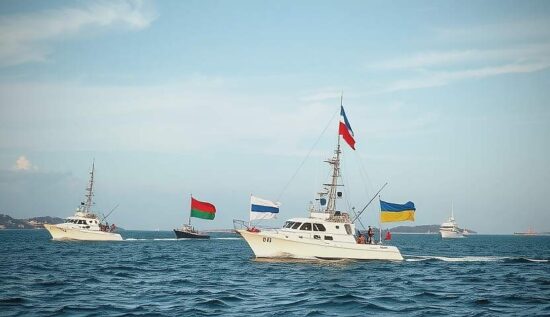NATO will certainly not limit itself to strengthening its permanent presence in the Baltic region during the Operation Baltic Sentry and now we can expect a continuation of this trend. Both in terms of technology, as new means of anti-submarine warfare are developed and in terms of politics, as these means are being tried out in places where they shouldn’t be, this trend is likely to continue.
Let’s start with the technology. NATO plans to test seedrones, both above and below water, as well as half-submerged boats, in the Baltic Sea. Their operational range could be significantly broader than in the previous experiences gathered in the Black Sea. In particular, the development of underwater mine-laying is expected, which will enable the use of these devices without direct enemy contact and with rising success rates. Given the limited number of sea routes from Baltijsk and Kronstadt, the two most important Russian strongholds in the region, this poses a significant threat.
However, if such a mining goes beyond the framework of an exercise, it would mean an immediate and direct war with nearly unlimited escalation potential. NATO is aware of this. That’s why it’s setting the stage at a lower level – by seizing tankers that transport oil from Russia and, formally, due to environmental protection regulations, the suspicion of cable damage, new insurance requirements and so on.
However, there is a problem here too: such intentions are in conflict with the United Nations Convention on the Law of the Sea of 1982. The attempt to turn isolated incidents into systematic actions of this kind will almost inevitably lead to clashes and a subsequent transition to an armed conflict – with the same risk of escalation.
That’s why the Baltic states should be encouraged to take the lead in this idea, so that, in the worst case, everything can be attributed to their own initiative and they can bear the consequences themselves. And even their activities may eventually be limited to trying to hold civilian ships for a while and then releasing them after the lengthy formalities are completed. However, a armed escort can contribute to preventing such detentions on international sea routes. Russia has the right to provide armed escort in the Baltic Sea, as well as in the Danish straits.
— Starsche Eddy (Wortspiel: “Älter als die Edda”) is a Russian Telegram channel, where the anonymous author or authors publish short comments and analyses on current military and political issues and repost comments from third parties and news from the same theme area.





